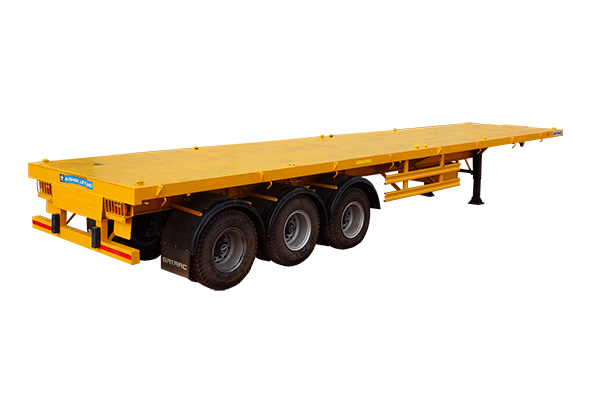In the ever-evolving world of logistics and transportation, efficiency and versatility are paramount. One of the most effective tools in achieving these goals is the flat top trailer. This type of trailer has become a staple in various industries due to its ability to handle a wide range of cargo types and sizes. This article explores the numerous benefits of flat top trailers and how they contribute to efficient hauling and transport.
Versatility in Cargo Transport
Flat top trailers, also known as flatbed trailers, offer unparalleled versatility compared to other types of trailers. Their flat, open deck design allows for the transportation of diverse cargo types, including large machinery, construction materials, and oversized goods that may not fit in enclosed trailers. This flexibility makes them an essential asset for industries such as construction, manufacturing, and agriculture.
The open design of flat top trailers enables easy loading and unloading from all sides. This is particularly advantageous when dealing with bulky or irregularly shaped items that require specialized handling. Additionally, flat top trailers can accommodate various cargo securing methods, including straps, chains, and tarps, ensuring that goods are transported safely and securely.
Enhanced Load Capacity
One of the primary advantages of flat top trailers is their ability to handle heavy and oversized loads. Unlike enclosed trailers that have weight limitations due to their structure, flat top trailers are designed with robust frames that can support significant weight. This makes them ideal for transporting heavy construction equipment, large pipes, and other substantial materials.
The flat top trailer’s design also allows for a lower deck height compared to enclosed trailers. This lower profile contributes to a higher load capacity, as it provides more space between the trailer’s deck and the ground. Consequently, flat top trailers can transport taller loads without exceeding height restrictions, which is crucial for compliance with road regulations.
Increased Operational Efficiency
Flat top trailers contribute significantly to operational efficiency in the logistics and transportation sectors. The ease of loading and unloading reduces turnaround times, allowing for faster delivery schedules. This efficiency is particularly beneficial in industries where time-sensitive deliveries are critical, such as in the construction sector where project timelines are tightly managed.
Moreover, the ability to quickly and easily secure cargo with various methods enhances safety during transport. Properly secured loads are less likely to shift or become dislodged, reducing the risk of damage to the cargo and potential accidents on the road. This reliability translates to fewer delays and increased overall efficiency in transport operations.
Cost-Effectiveness
From a financial perspective, flat top trailers offer cost-effective solutions for hauling and transport. Their robust construction and versatility mean they can handle a wide range of cargo types, reducing the need for multiple specialized trailers. This versatility minimizes capital investment and operational costs associated with maintaining different types of equipment.
Furthermore, the ability to transport larger and heavier loads in a single trip reduces the number of trips required for delivery. This not only cuts down on fuel costs but also decreases vehicle wear and tear, leading to lower maintenance expenses over time.
Adaptability to Various Environments
Flat top trailers are adaptable to a wide range of environments and conditions. Their open deck design makes them suitable for transporting goods in various weather conditions, with the option to use tarps and covers to protect cargo from rain, snow, or dust. This adaptability is especially beneficial in industries that require transportation across diverse geographic locations and environmental conditions.
Additionally, the flat top trailer’s design allows for easy customization to meet specific transport needs. For example, trailers can be equipped with specialized equipment or modifications to handle unique cargo requirements, further enhancing their versatility and effectiveness.
Conclusion
Flat top trailers are a vital asset in the realm of efficient hauling and transport. Their versatility, enhanced load capacity, operational efficiency, cost-effectiveness, and adaptability make them indispensable tools for various industries. By providing an open and flexible platform for transporting diverse cargo types, flat top trailers help streamline logistics operations and contribute to smoother, more reliable transportation processes.
As industries continue to seek ways to optimize their transport solutions, flat top trailers will undoubtedly remain a cornerstone of efficient and effective hauling practices. Their ability to handle large, heavy, and irregularly shaped loads, coupled with their cost-saving benefits, underscores their importance in modern transportation and logistics.












Comments